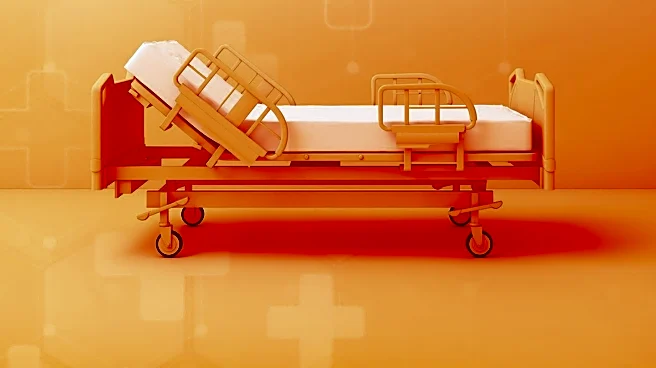What's Happening?
Hospitals across the United States are facing unprecedented challenges due to policy shifts, economic turbulence, supply chain instability, and workforce strain. To navigate these complexities, healthcare
leaders are turning to integrated systems that offer real-time, enterprise-wide visibility into operations. By implementing platforms like NetMenu, hospitals aim to reduce paperwork, manual adjustments, and costly errors, thereby freeing up staff to focus on patient care. These systems automate routine tasks such as dietary compliance and procurement processes, improving forecasting accuracy and reducing redundancies. The goal is to create stability by moving away from disconnected processes toward interconnected systems that enhance efficiency and profitability.
Why It's Important?
The integration of unified platforms in hospitals is crucial for addressing rising supply costs, labor shortages, and waste management issues. With new tariffs expected to increase costs on critical supplies, hospitals operating on thin margins need smarter purchasing and tighter forecasting to maintain financial stability. Labor challenges, exacerbated by staffing shortages, impact patient satisfaction and operational hours. Automating routine tasks can alleviate staff strain and improve patient care. Additionally, hospitals generate significant waste, particularly food waste, which can be reduced through better inventory decisions enabled by digital nutrition and ordering systems. These improvements are essential for hospitals to build resilience and improve outcomes amidst ongoing uncertainty.
What's Next?
Healthcare leaders are encouraged to assess every process, from procurement to workforce management, to identify areas for efficiency gains. Investing in platforms that create a more unified ecosystem will position hospitals to better handle future challenges. The focus is on making strategic improvements that ease operational pressure and empower healthcare teams. As hospitals continue to face rising costs and workforce shortages, the adoption of integrated systems will be key to maintaining stability and enhancing patient care.
Beyond the Headlines
The shift towards integrated systems in hospitals not only addresses immediate operational challenges but also sets the stage for long-term resilience. By breaking down silos and offering a real-time view of performance, these systems enable hospitals to respond flexibly to future uncertainties. The emphasis on interconnected processes reflects a broader trend in healthcare towards patient-centered solutions that mirror the convenience and security expected in everyday transactions. This approach not only improves efficiency but also aligns with the evolving expectations of healthcare consumers.









